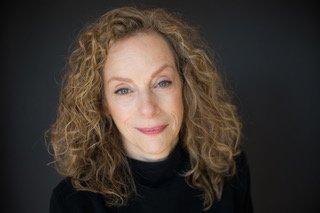What would life be like if you could not experience fear? How much fear do we need? Which part of the brain governs fear? FEAR LESS, the compelling new play by Jacquelyn Reingold, tells the story of Orva, whose damaged amygdala prevents her from feeling fear, and Nadine, the neuroscientist who spends years studying her. What transpires is an investigation into fear, fearlessness, boundaries, friendship, and the struggle to survive.
FEAR LESS will have its first public reading this Thursday, May 16 at 3:00 PM at the Ensemble Studio Theater as part of the 2024 EST/Sloan First Light Festival. The reading is free and reservations are encouraged.
Squeezing in time between rehearsals, rewrites, and other commitments, Jacquelyn Reingold kindly agreed to tell us more.
(Interview by Rich Kelley)
Where did the idea for FEAR LESS come from?
The idea for FEAR LESS came from reading about a real person, studied for decades, because she was “fearless.” There was a brief explosion of articles, social media, about a woman with this unusual condition. The more I read, the more questions I had, and the more intrigued I was. It got me thinking about the role of fear in women’s lives. I wondered what would happen if two women: one “fearless,” and one “fearful,” were put together, dramatically. That’s where the play began.
FEAR LESS covers so much: the neuroscience of what happens when someone has a damaged amygdala, the complex relationship that can develop between a researcher and her subject, the power politics of scientific research. What research did you do to write this play?
I talked with several neuroscientists about fear, which, I quickly learned, was infinitely complex. I read articles and books that discussed conflicting, changing, theories. The research was, for me, a way to find questions to write to, and themes to dig into. At a certain point the play took over. I then cared about the characters, their lives, their arcs, and I hoped the audience would, as well. The play became the thing. I tried to find these two women’s stories, best I could.
I also heard from neuroscientists about sexism and racism in the field, and in academia in general, past and present. One story about the male professors in a department lunching at a strip club without the one female professor, stuck with me. In addition to many anecdotes of biased practices around funding, hiring, assignments, credit, promotions, grants. It was a long list.
What do you want the audience to take away from FEAR LESS?
My hope is that people will leave the play thinking about the experience of fear — for Orva, a white working-class woman, with a damaged “fear center,” and for Nadine, a Black neuroscientist, with a sensitive “fear center.” And I hope people will think about the role of fear in all our lives, but especially for women. How much do we need? How much is too much, or too little? And how, like Orva and Nadine, are we different, similar, allied, impossibly apart, and how we might come together. Or not.
Your play String Fever about string theory, the Theory of Everything, and other string-related subjects, was an EST/Sloan Mainstage Production in 2003. What makes writing an EST/Sloan play different?
The specific challenge for me, in writing an EST/Sloan play, is finding how to make the science personal. If I don’t find a personal way in, I can’t write it. If I can’t find a story I care about, I don’t want to write it. I write plays because I love to explore characters I love, so if I can’t find that piece of their heart that moves me, and makes me want to imagine their stories, I won’t write the play. And science doesn’t necessarily lead to that. At least not for me.
You received a Lilly Award last year for your work as a playwright and for co-founding Honor Roll!, an advocacy group for women playwrights over 40. How did Honor Roll! come about? Have you been able to measure its impact?
Yes, I received a Lilly Award last year, as a playwright and as an advocate. It was thrilling. Honor Roll! an organization I co-founded, received a monetary award as well. Honor Roll! is a grass-roots group that advocates for women+ playwrights over 40. Since its founding, I’ve discovered it’s women over 50 that are (mission statement:) “the generation once excluded because of sexism, now overlooked because of ageism.” Playwright Cheryl Davis and I are on a campaign to meet with every theater in New York to advocate for greater inclusion for women playwrights over 50. Future seasons will tell us if we’ve succeeded. We are not giving up.
In his speech introducing you at the Lilly Awards, Evan Handler (who was in String Fever at EST) attested that you are his favorite playwright, noting “I love Jackie’s plays because they mine a life that’s full of truths stranger than fiction, to create metaphors more perfect than poetry.” He then went on to say that your plays are “shockingly underproduced.” Why do you think that is?
I was so happy when EST member Evan Handler, who directed my first play, and was in String Fever, introduced me at the Lillys. Why are my plays, as Evan said, “shockingly unproduced?” I guess you’d have to ask theaters. Maybe I said, and did, too many stupid things when I was younger. Or maybe there were too few opportunities then, and at a certain point, I wasn’t marketable. I didn’t go to an elite MFA program. I never had a mentor. I don’t care about fashion; I write what interests me. Or maybe theaters don’t like my writing! But once I passed my mid-40s, almost all of the small-theater opportunities I’d had, disappeared, and never returned. Happily, I was embraced by TV, where I had fun getting paid, writing for some great shows, and working with some amazing people. But I always missed what I most loved: writing plays.
What’s next for Jacquelyn Reingold?
What’s next for me? Another play.
FEAR LESS is one of six readings of new plays in development as part of the EST/Sloan Project in this year’s First Light Festival, which runs until June 17. All readings are free, but reservations are encouraged. The festival is made possible through the alliance between The Ensemble Studio Theatre and The Alfred P. Sloan Foundation.












